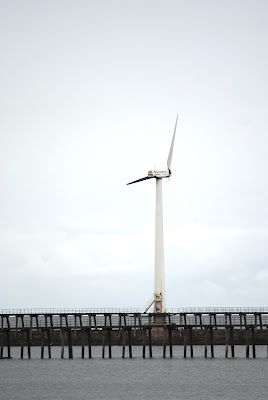This blog may help people explore some of the 'hidden' issues involved in certain media treatments of environmental and scientific issues. Using personal digital images, it's also intended to emphasise seasonal (and other) changes in natural history of the Swansea (South Wales) area. The material should help participants in field-based modules and people generally interested in the natural world. The views are wholly those of the author.
Wednesday, 19 July 2023
Encouraging Local 'Greener' Developments?
Rebecca Willis (Lancaster University) suggests UK locals can be enthused to go 'green' (https://www.theguardian.com/commentisfree/2023/jul/18/british-seaside-town-revolutionise-green-energy). Whitehaven, in the English NW, recently became somewhat notorious, when the UK government reneged on 'pledges' and approved siting the country's first deep coalmine there for 40 years. This was, of course, totally contra what the same 'decision makers' had been arguing at recent COP meetings. A factor that encouraged their giving approval, was local demand for scarce, well-paid jobs. Willis notes the arrival of advocates for Project Collette in Whitehaven. This project propose to site a £3bn windfarm off the Cumbrian coast. Project Collette would be part-owned by the local community. It would supply the local area (including the coalmine?) with 'green' electricity. If approved, the project would also generate profits for the locals and create lots of well-paid jobs. Willis argues, that giving locals a financial stake in this kind of proposal, could 'turbo charge' a transition to renewables. Consequently, approval for Project Collette ought to be a 'no brainer'. It's called 'joined up thinking'. Simples!
Subscribe to:
Post Comments (Atom)
-
I n the UK and US, a pparently popular and successful vegan/vegetarian restaurants are reportedly closing or adding meat to their menus ( ...
-
Early ripening fruit may seem convenient but some folk think it confirms environmental stress. There's also a possibility th...


%20mating%20NWCW.jpg)


No comments:
Post a Comment